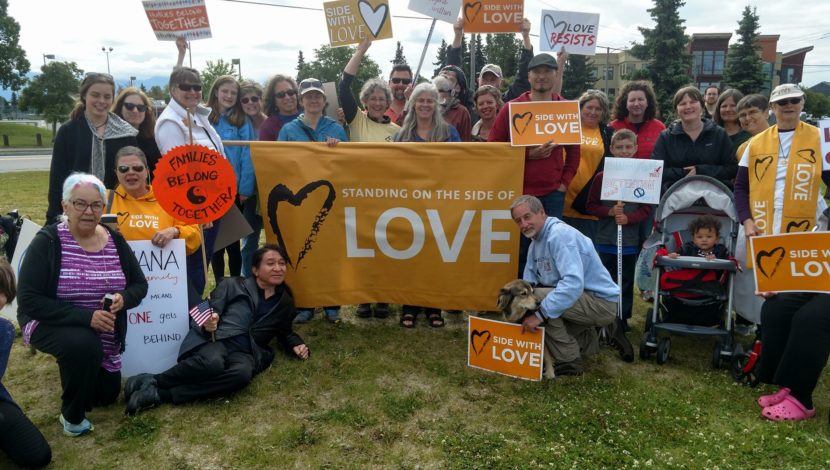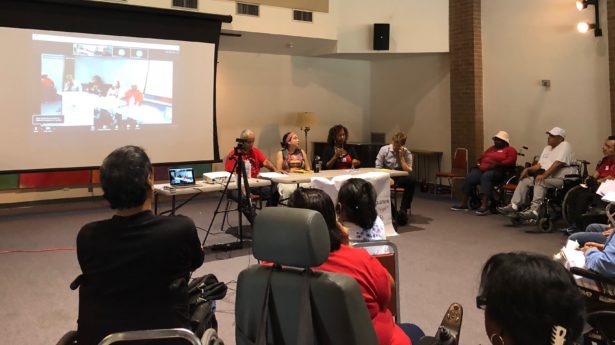The Unitarian Universalist Service Committee advances human rights through grassroots collaborations.
Climate Corner: Taking Action in Alaska

By UUSC on September 18, 2018
In October, the Anchorage Unitarian Universalist Fellowship (AUUF) will welcome participants of the First People’s Convening on Climate-Forced Displacement to Anchorage in anticipation of a three-day conference. UUSC sat down with Amanda Mack, president of the Fellowship’s chapter, to talk about climate-forced displacement and what Unitarian Universalists in Alaska are doing to address its impact.
UUSC: As a congregation based in Alaska, what impacts of climate change have you experienced firsthand? What is one thing that you’d like UUSC members to know about the impact of climate change in Alaska and how it impacts Indigenous communities?
Amanda: Members see climate change firsthand every year as we recreate in Alaska. We visit glaciers on land and via the water where you can actually see how much they have receded year to year. Portage Glacier, a quick drive from Anchorage up the Turnagain Arm, still exists, however, the glacier has receded so much in the past couple of decades that it is no longer visible from the visitor center. We see more rain and less snow each winter in Southcentral Alaska. We see Alaska Native people, among others, with signs asking for money and food on street corners. Alaska Native people make up a large portion of our homeless population in Anchorage. They are driven from their villages for many reasons that include the cultural impacts of climate change. For example, recent news stories report that the salmon harvest this year was 30 percent below estimates and whale populations are declining, both of which are being attributed to warming ocean temperatures. We know that these stories impact commercial fisherman as well as those who fish or whale to feed their families during the winter, including members of our congregation. In these ways, climate change impacts Alaska Native people and to a lesser extent members of AUUF.
UUSC: How has your congregation been engaged in issues related to climate change and its impact on Alaskans?
Amanda: AUUF is directly engaged in climate change through our work with an interfaith group called AFACT. The group is pursuing a climate change project with another church, St. Mary’s Episcopal Church, to impact a climate change-related policy in Anchorage. They are in the research phase working with the city on their local climate change task force to identify a small doable action step we can take for this project.
AUUF also contributes a half portion of our Sunday morning offerings (we have two services) to nonprofits that are doing work in alignment with our UU values. In August, UUSC is our organization of choice who will receive the half portion check. July’s half portion went to the Alaska Institute for Justice, a UUSC partner organization for the convening here in Alaska.
UUSC: With regards to the climate convening, what role will your congregation play and what are you looking forward to the most?
Amanda: We are looking forward to providing logistical support for the convening. We are organizing a welcoming committee to greet people at the airport. We also are coordinating sightseeing excursions, a welcoming church service, warm jackets, and transport for participants to and from the conference location. It’s an important opportunity for members of AUUF to get proximal with those most impacted by climate change. These kinds of interactions help AUUF determine how to most effectively shape our local social justice efforts in our community.
Read This Next
Partner Spotlight: Ursula Rakova
Keeping Carteret Island culture alive during climate-forced relocation. Read More →
